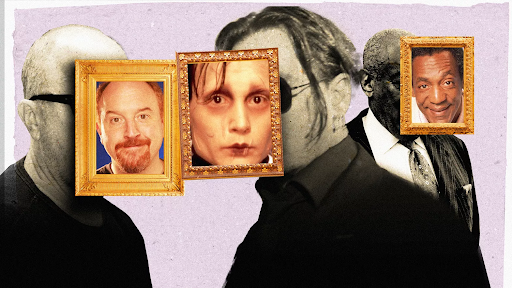“Bravo la pédophilie! Bravo la pédophilie!” Chanted Adèle Haenel at the César Awards, walking out of the theater upon the announcement of Roman Polanski as Best Director. The director is a convicted rapist and pedophile and his win opened up the timeless debate; how do we treat artists who’ve done terrible things? Here’s an idea: boycott them.
The debate revolving around the separation of the art from the artist is most commonly brought up when an artist has committed a sexual crime, yet is still free of punishment and is allowed to continue producing content.
Aside from exhibiting the gross lack of punishment famous men receive, Polanski’s win shows one thing for certain; people are still enjoying what he produces, regardless of the things he’s done. Of course, his win received a lot of backlash, not only from fellow actors and filmmakers but also by women who staged a walkout and protested after his win. However, polarizing opinions emerged, people who thought one should enjoy the art, regardless of what its producer has done. It’s okay to consume it since it’s not technically hurting anyone, and it’s simply for the consumer’s enjoyment. This notion could be quite problematic.
Art is never objective, let’s get that out there. Art comes from emotion and depth, whether it’s acting, writing, directing, producing, singing. It is for this reason that we cannot look at art as an autonomous entity, something we can easily look at in an isolated sphere. Think of it this way: when you’re analyzing a poem, you must look at the poet’s life to determine exactly what they mean with each line. Similarly, when analyzing a film, you must consider who the director is, what they are like and how they think. Every shot, every frame, every angle, every color matters in film, and it is all born from a mind.
Woody Allen, notorious creep accused of molesting his ex-partner Mia Farrow’s adopted daughter Dylan Farrow. Additionally, he married her other daughter, Soon-Yi Previn, whom he’d known since she was underage. Circling back to the point, Allen has directed and written multiple films that would alarm the audience of such potential behavior, including his film Manhattan (1979). The film “explores how the life of a middle-aged television writer dating a teenage girl is further complicated when he falls in love with his best friend’s mistress.” You can see how fiction and reality reflect on each other.
Another example is comedian Louis CK who has admitted to sexually harassing multiple women in the 90s and early 2000s. In his stand up comedy and TV shows, Louis’ often filthy comic approaches to issues, often being forthright about issues involving sex and masturbation. Here again, “art” imitating life becomes apparent.
This isn’t just an issue for only the people in the actual industry to consider. This is about actual human rights. These actions happen everywhere, in every industry; in an office, in a factory, in a university. Workplace harassment is just as elusive and is not taken seriously as harassment in the streets or among box office big shots. We should all have opinions on this and share them publicly. @debaeser on Twitter said, “I think all artists are expressing their narratives and ideologies in their arts/writings whether they admit it or not, and they are definitely expressing their true selves, so I can’t ignore an artist’s politics or past actions.”
What’s important to ask is why separate. What does the person in question have to gain from us streaming their music and watching their films or what have you?
There are multiple ways these creators can benefit. Financially, they benefit from ticket/DVD sales, streamed music, and sold books. Additionally, artists have cultural value and power. Woody Allen isn’t just a guy; he’s the director and writer of many beloved films. People still praise his work. Bryan Singer’s (accused of statutory rape of teen boys) film Bohemian Rhapsody was nominated and won many awards. Chris Brown is still revered, even after beating Rihanna in 2009. This shows how this acclamation gives these people a sort of cultural power. They still hold their fame, and their notoriety becomes a backstory rather than a front-liner. They go on to produce their content and the audience eats it up, continuing the vicious cycle of letting harassers roam free.
How can we expect the art industry to evolve when it can’t hold vulgar artists accountable, especially in this post-MeToo era? This is not only a breach of women’s rights but also of ethical and moral expectations, and nothing screams “corrupt industry” as much as blatantly ignoring its members’ suffering.





